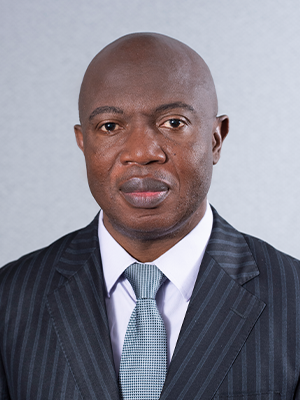While state-owned electricity utilities have long dominated energy production in the Southern African Development Community (SADC), greater private sector involvement could boost energy security across the subregion.
The good news is that SADC member states are actively investing in the energy sector to ensure stability and create opportunities for private sector investment. This is according to Prof Muhiya Lukamba, associate professor in public administration at the North-West University’s (NWU’s) Vanderbijlpark Campus.
His research focuses on the Southern African Power Pool (SAPP), a regional electricity market established by the SADC, and its impact on energy security within the subregion.
Prof Lukamba says energy security refers to the availability of sufficient energy to meet internal energy demands. “In the SADC, energy security has a direct influence on economic growth, social development and environmental sustainability.”
Here, the SAPP plays a vital role. It coordinates the planning and operation of the electric power system among member utilities, provides a forum for regional solutions and serves as a platform for member states to trade surplus electricity generated by their national power utilities.
Prof Lukamba says while private sector companies involved in electricity generation within the SADC region have been unable to trade their energy surplus through the SAPP, his research explores the potential benefits and challenges of expanding participation to include these entities.
For this to happen, it is necessary to identify and address the barriers, constraints and regulatory frameworks that limit the full participation of private sector companies in electricity trading, he says.
His research entails using document analysis to collect data and address the study's main research question on the role of the private sector and the energy pool’s impact on regional energy security.
Specifically, he analyses the financial reports and electricity trade volumes within the power pool to assess the competitiveness and influence of the market.
The analysis examined four markets within the SAPP:
- The Forward Physical Market – Monthly (FPM-M): Here electricity is traded on a monthly basis, with contracts set for future delivery.
- The Forward Physical Market – Weekly: This is similar to FPM-M, but with contracts set on a weekly basis.
- The Day-Ahead Market: Here electricity is bought and sold for delivery on the following day.
- The Intra-Day Market: This entails trading electricity on the same day, allowing for adjustments based on real-time supply and demand.
According to Prof Lukamba, the financial revenues generated by these markets during this period are deemed insufficient. Nonetheless, the study acknowledges the potential for improvement in the future.
“The findings of this research highlight the importance of electricity trade in promoting energy security within the SADC. While the presence of competitive markets within the SAPP facilitates regional energy trading, the financial revenues generated thus far indicate that there is ample room for enhancement,” says Prof Lukamba.
“This is why it is so important to address the barriers that constrain private sector companies from participating fully in electricity trading.
“To enhance energy security further, it is imperative for member states to identify and address the challenges faced by private sector entities in participating in the SAPP. Future research should focus on devising effective strategies to optimise the potential of electricity trading within the SADC.”

Prof Muhiya Lukamba.
